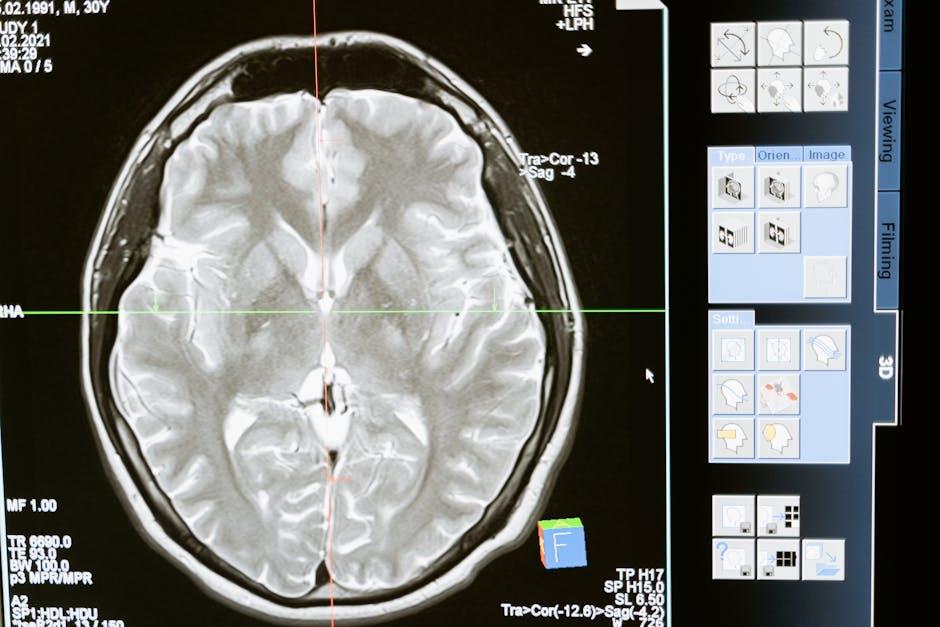In the hustle and bustle of our daily lives, we often find ourselves preoccupied with maintaining our physical health—hitting the gym, eating right, and getting enough sleep. But amid this whirlwind of self-care routines, there’s one vital aspect that often goes unnoticed: our brain health. Imagine your mind as a vast, intricate garden, teeming with potential and possibility. Yet, without proper care and attention, this garden can become overgrown, neglected, and vulnerable to unseen threats. In this article, we will embark on a journey to explore the hidden dangers of overlooking our brain’s well-being. Together, we will uncover the subtle signs of neglect and discover compassionate ways to nurture and rejuvenate our most precious organ. Because when it comes to our minds, a little attention can make all the difference between a flourishing landscape and a fading one.
Unlocking the Secrets of Brain Health: Understanding the Basics
Our brains are the most complex organs in our bodies, responsible for everything from regulating basic bodily functions to enabling our highest intellectual pursuits. Yet, we often overlook the importance of nurturing this vital organ. Brain health is not just about avoiding disease; it’s about optimizing your mental capabilities and enhancing your quality of life. Understanding the basics of brain health involves recognizing the key factors that can either fortify or compromise our cognitive abilities.
Several lifestyle choices play a crucial role in maintaining a healthy brain. Consider incorporating the following into your daily routine:
- Nutrition: A balanced diet rich in omega-3 fatty acids, antioxidants, and vitamins can significantly boost brain function.
- Exercise: Regular physical activity increases blood flow to the brain and encourages the growth of new brain cells.
- Sleep: Adequate rest is essential for memory consolidation and clearing out toxins that accumulate in the brain.
- Mental Stimulation: Engaging in challenging activities like puzzles, reading, or learning new skills keeps your mind sharp.
- Social Interaction: Maintaining strong social connections can help ward off depression and cognitive decline.
By understanding and prioritizing these elements, you can unlock the secrets to a healthier brain and ensure that you are not unwittingly neglecting this cornerstone of your well-being.

The Silent Threats: Identifying Common Brain Health Pitfalls
In our fast-paced lives, it’s easy to overlook the subtle ways we may be compromising our brain health. One of the most insidious pitfalls is chronic stress. Constant stress not only affects our mental well-being but also triggers physical changes in the brain, leading to memory problems and a reduced ability to learn. Additionally, the modern diet, often laden with processed foods and sugars, can wreak havoc on cognitive function, silently diminishing our mental acuity over time.
- Sleep Deprivation: Skipping on quality sleep can lead to long-term cognitive decline.
- Physical Inactivity: A sedentary lifestyle can impair brain health, reducing neuroplasticity and increasing the risk of dementia.
- Social Isolation: Lack of social interaction can lead to loneliness, which has been linked to cognitive deterioration.
By recognizing these often-overlooked threats, we can take proactive steps to nurture and protect our brain, ensuring it remains healthy and resilient against the challenges of modern life.
Nourishing Your Mind: Essential Practices for Cognitive Well-being
In our fast-paced world, it’s easy to overlook the intricate needs of our mind. Yet, nurturing our cognitive well-being is paramount for a fulfilling life. Imagine your brain as a lush garden; without the right care, it can wither. Here are some essential practices to ensure your mind remains vibrant and resilient:
- Mindful Meditation: Take a few moments each day to focus on your breath, allowing your thoughts to flow without judgment. This practice not only reduces stress but also enhances concentration.
- Nutritious Diet: Fuel your brain with omega-3 fatty acids, antioxidants, and vitamins found in foods like salmon, blueberries, and leafy greens. A well-nourished brain is a happy brain.
- Quality Sleep: Prioritize rest. During sleep, your brain processes information and heals, laying the foundation for optimal mental health.
Remember, tending to your mental garden requires patience and dedication. By integrating these practices into your daily routine, you can cultivate a robust and flourishing cognitive landscape.
Your Brains Best Friends: Lifestyle Changes That Make a Difference
In the hustle and bustle of daily life, it’s easy to overlook the small habits that can nurture and protect our most vital organ. Our brains thrive on more than just intellectual stimulation; they crave a holistic approach that embraces the body, mind, and spirit. By making mindful lifestyle changes, you can cultivate an environment where your brain feels truly at home.
- Physical Activity: Embrace movement not just as exercise but as a celebration of life. Regular physical activity increases blood flow, delivering oxygen and nutrients that keep your brain sharp and energized.
- Nutrition: Feed your brain with a balanced diet rich in antioxidants, omega-3 fatty acids, and vitamins. These nutrients are the building blocks of cognitive health, fortifying your mind against age-related decline.
- Sleep: Prioritize restful sleep as a sacred ritual. It’s during these quiet hours that your brain processes information, consolidates memories, and rejuvenates for the challenges of a new day.
- Mindfulness: Practice mindfulness to reduce stress and foster a peaceful mind. Techniques like meditation and deep breathing cultivate a mental environment where creativity and problem-solving can flourish.
- Social Connections: Nurture your social network. Meaningful interactions stimulate cognitive functions and can even build resilience against mental decline.
By integrating these elements into your lifestyle, you not only safeguard your brain health but also enrich your overall well-being. These small, intentional steps can lead to profound changes, ensuring that your brain remains your steadfast ally throughout life’s journey.


